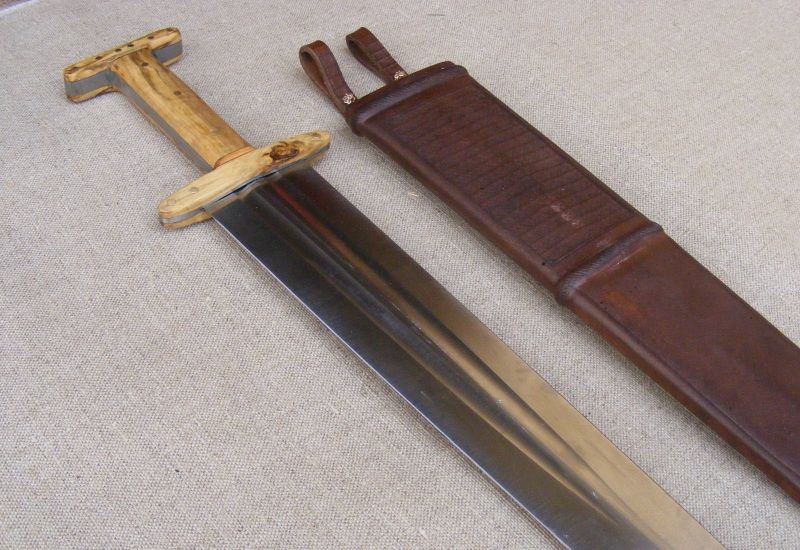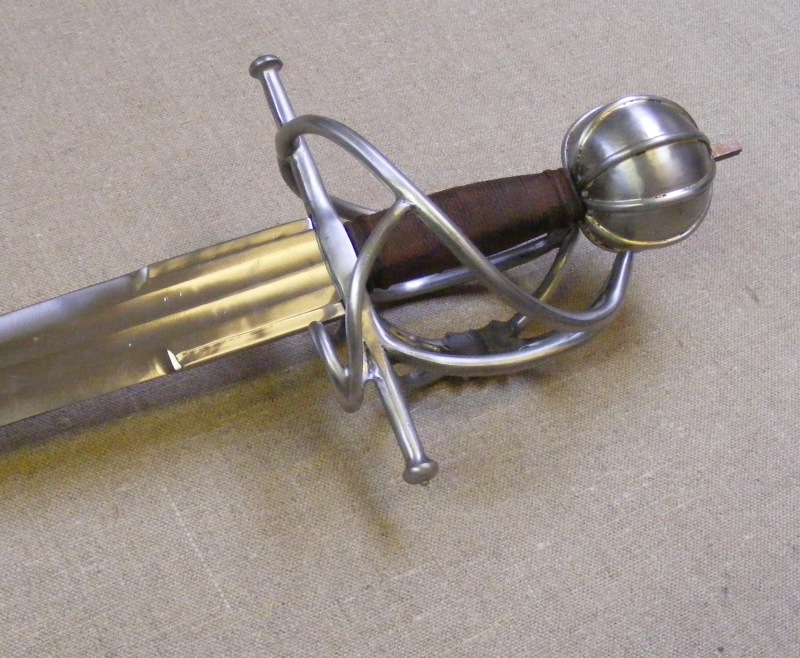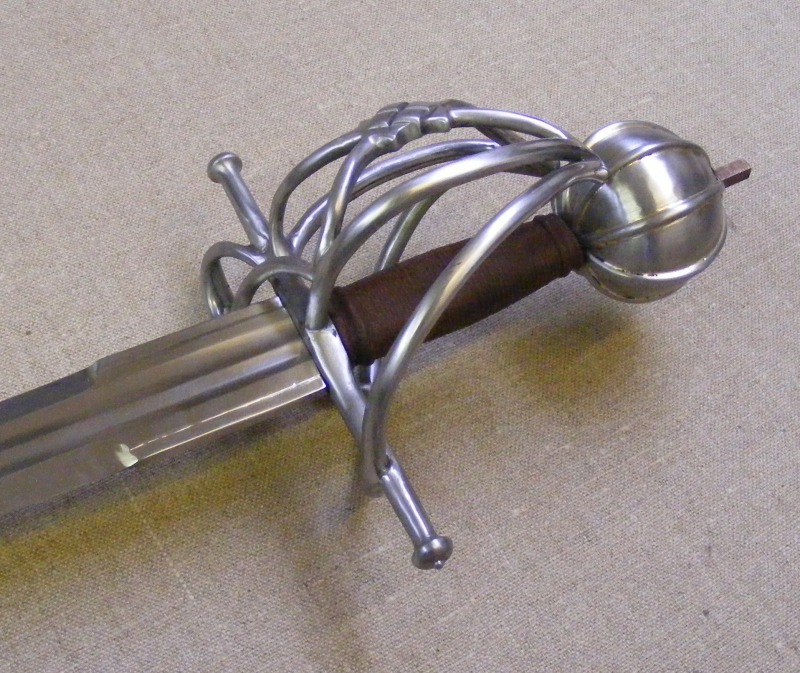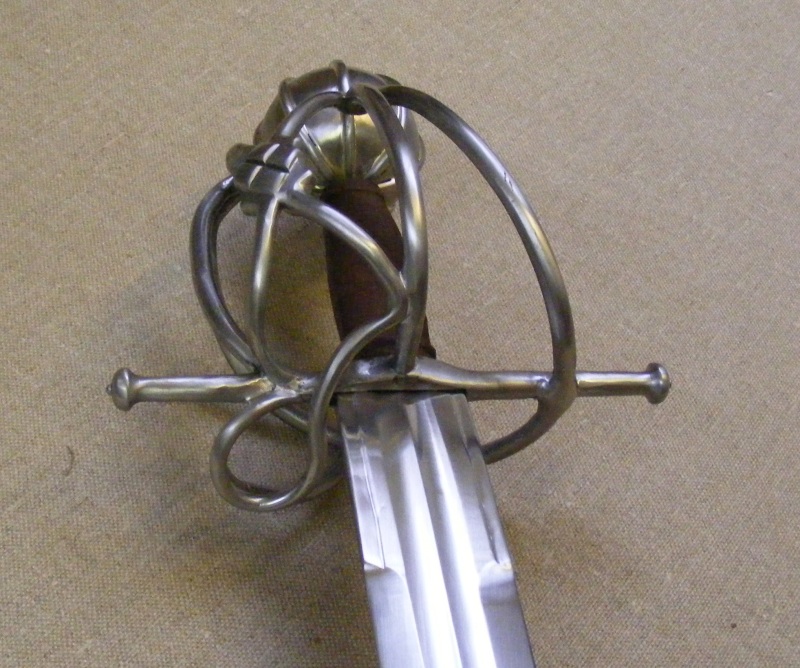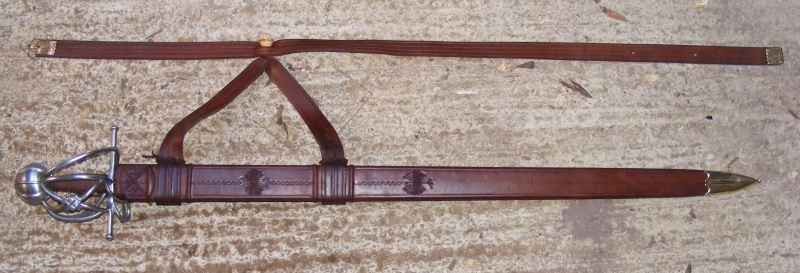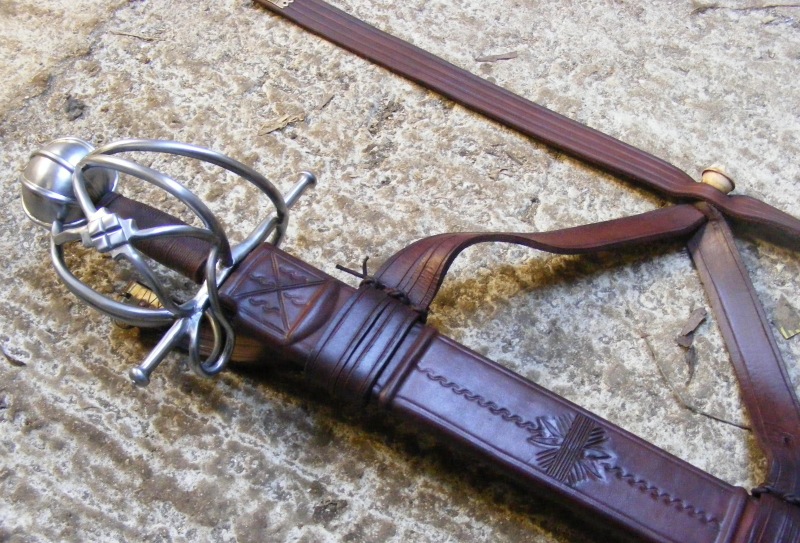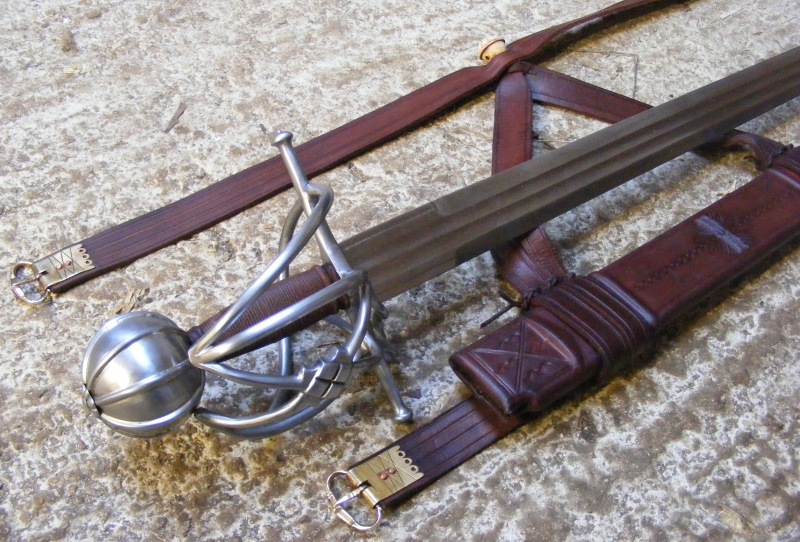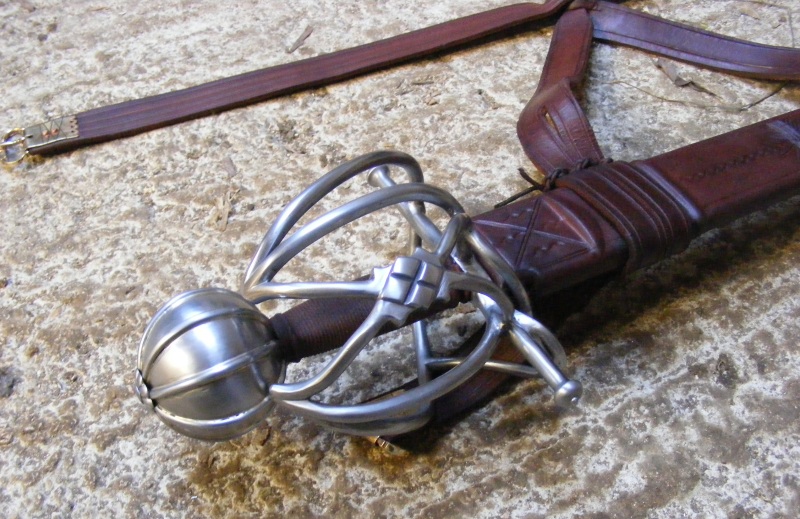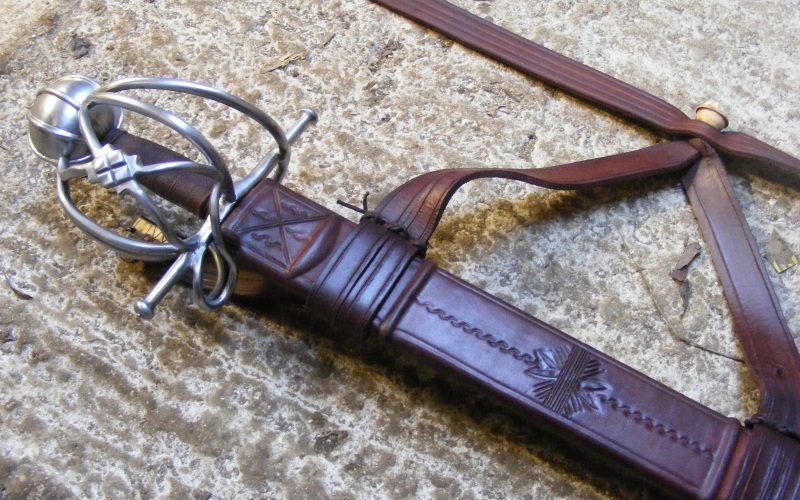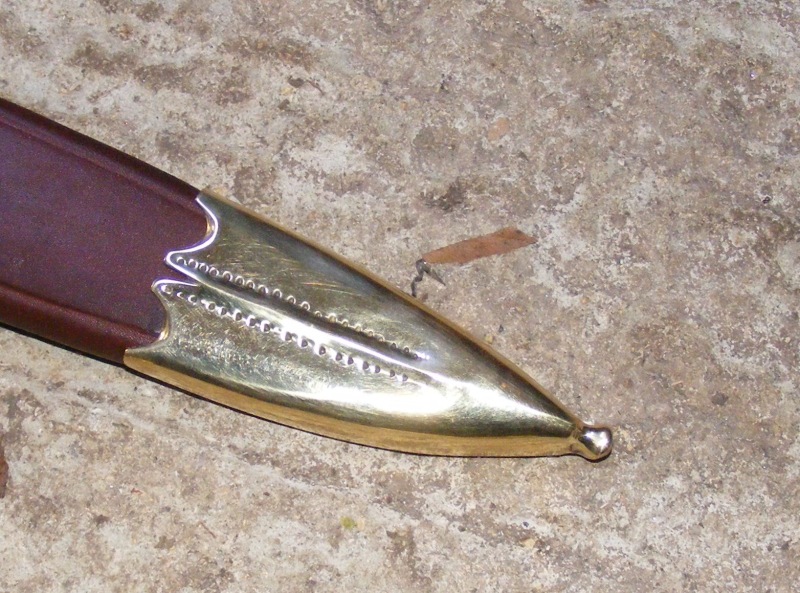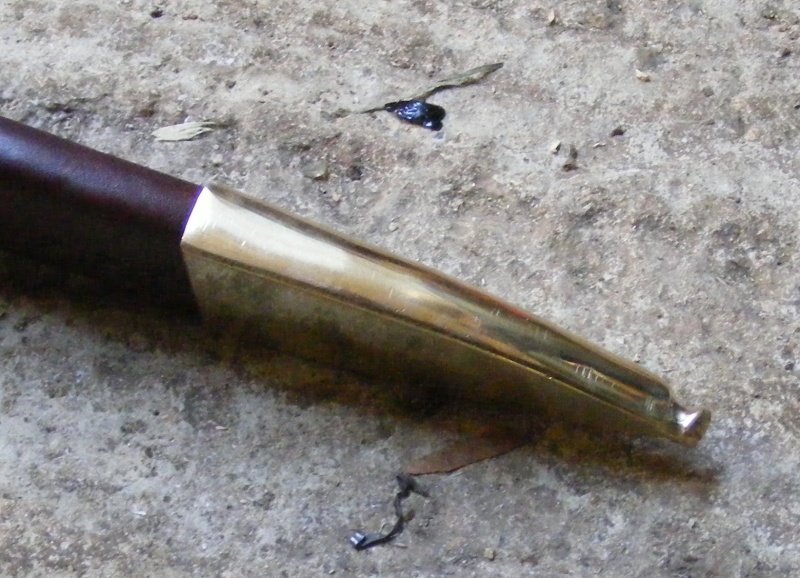Well here are two very different pieces and in fact the title is a bit of a lie. The first piece is a baselard, but a darn big one, with a 26" blade. This piece is not based on a particular item, but has taken its inspiration from one in Oakshottes' Archeology of Weapons which is of a very similar size, but the hilt is a little different.
This piece is very much a large dagger rather than a sword and the hilt form precludes some sword moves, but I guess it got around some of the anti-sword legislation of the time. The blade was forged down from a larger billlet and the tang starts at about 8mm thick and goes to about 11mm at the top. The blades starts at 6mm and tapers down to 3.2mm (1/8") 50mm (2") from the tip.
The top loop is formed from 1.5mm steel and brazed to the tang. The scales are box wood with yew spacers and the scabbard is double layer vegtan leather.
Baselard stats
COP 17"
POB 5"
Thickness at hilt 6mm
Thickness 50mm from hilt 3.2mm
blade length 26"
Weight is 860g (about 1lb13oz)
The second piece was more of a challenge on many levels, the first being that it was based very closely on the 'Southwark sword', a sword found in the Thames in the 19thC and dated to about 1540. I went to examine the original and there was no way I was going to be able to measure all those curves in any meaningful way so I took a load of pictures, but also made a macquette of the hilt with copper wire and a grip, that I used back at the workshop to help with the forms and clearances.
I noted a few interesting aspects to this sword that I had not expected. The overall manufacture was a little 'workaday' in that it was not a very highly finished piece; well made and structurally sound, but not a jaw dropper of the time. I tried to reflect this in my work in that the bars change in diameter and are still faceted from the anvil.
The pommel was actually quite a way from spherical and the side closest to the grip is 5mm flatter than the other side so that the whole is quite egg shaped.
The ribs on the pommel on my piece are brazed on, whereas on the original they are welded, but of the 6 or 7 swords of this form I looked at there was quite a range of construction methods using combinations of brazing and welding and many had brazed ribs.
The blade taper was interesting as it started at the guard at 6.2mm, dropped to 4.5mm over the first 90mm/3.5" and then was steady toward the tip, ending in it being very thin.
What was also very notable were 2 aspects to the blade that I really didn't expect. The blade has twin fullers that are actually formed into a flat, not a diamond. So the blade is actually a hexagon that has fullers on the faces rather than the diamond that I would have expected. The other aspect is that in all the photos I have seen the two outside' fullers' on the ricasso really do look like fullers. They are however steps not fullers at all. The ricasso is basically flat and the edge steps drop down about 0.5mm from the ricasso surface and are square edged and flat bottomed, they are not curved edged fullers. Having seen all this, when I ground in the fullers on my blade I ran them up to the tang rather than stop the at the start of the ricasso - yes I swore. So this aspect of the origial I have had to do differently. That said the originals I looked at have a variety of forms in this area, so what I have done is not wrong to the form; just damn annoying.
The hilt, though very small is true size to the original and just clears my knuckles by about 5mm all round, the pommel on my piece is hollow like the original, though about 4mm larger. The grip on the original shows no sign of any binding, so not wire, and I suspect not cord either, so either just a leather sewn grip, or no covering at all. I have gone for a cord and leather grip.
I have fitted the sword together but will not permanently assemble the sword until the scabbard is made, which will be early next year.
Early basket stats
Blade length 38"
COP 26"
POB 5"
Thickness at guard 6.3mm
Thickness 50mm from tip 2.0mm
weight 3.5lbs
I hope you like the pieces and if you have any questions or want more information please ask away.
Thanks
Tod

